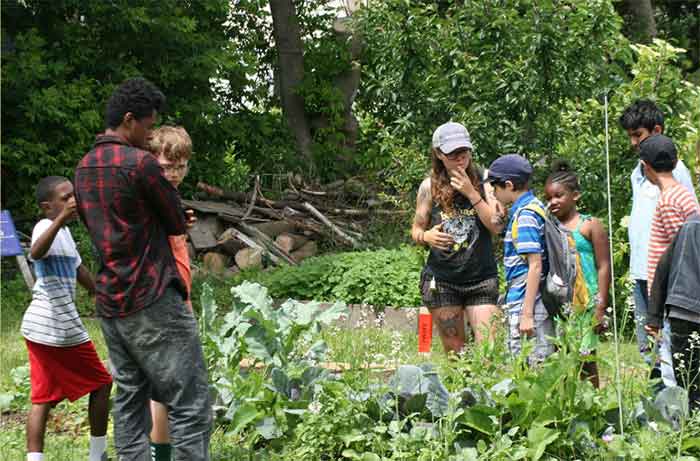
There has been a lot of discussion regarding educational reforms but even in the middle of all this it appears that the educational reforms that are most needed are being neglected.
The most educational reforms are those that make students well-informed about the importance and requirements of creating a world based on peace, justice and environment protection, at local as well as national and global level. In the course of their education students must also understand the importance of peace, justice and environment protection in the context of how they lead their own life and plan it for future.
If most of the students who emerge from schools and colleges have a good understanding of peace, justice and environment protection and have been thinking a lot about how they can make their own contribution to these most important needs of society in the course of their life, then this can be considered a very important and commendable achievement of the educational effort, contributing a lot to creating a better world.
In the course of their education students must understand in their immediate contexts, a village, town or city, how injustice and inequality causes distress among people and how this distress can be reduced by reducing injustice and inequality. Gender based injustice issues should also be taken up. Students should be encouraged to think—how can we contribute, no matter in how small a way, to reduce distress caused by injustice and inequality. To give an example, over a period of a month or so, students of a class can save 20% of their pocket money and then pooling this treasure at the end of the month, buy something of use for anyone affected greatly by deprivation and distress.
This local level understanding can gradually be extended to national level and global level understanding of justice and equality. Why it is very important to promote these, how these can be promoted and what obstructions and difficulties exist on this path. The simpler issues can be taken up at an early stage and the more complex ones at a later stage.
The importance of peace and non-violence at all levels of society should be emphasized, starting with peace in one’s own life and in immediate surroundings including school and family. What is wrong with bullying and related practices? Why should aggressive competitiveness be avoided and why students should not be too disappointed with any temporary setbacks? Such questions should be openly discussed so that students come forward to check bullying and aggressive competitiveness on their own. Teachers should encourage this by giving project work based not on competition but instead on how many students cooperate with each other to complete a project. There should be discussions on the importance of avoiding feelings of too much anger, aggression and revenge. Do we ever take good decisions when we are overcome with anger? Has life ever appeared good when we are obsessed by feelings of revenge and aggression towards others? Isn’t it better to try to make up, forgive and forget, whenever this is possible, instead of living with pent up aggression? Isn’t any act of violence in school and family almost always a very distressing experience and doesn’t it leave behind several scars? Free and open discussion on such issues, along with data and information on such issues, cam be helpful in reducing violence and violent instincts as well as increasing the commitment of students towards peace and non-violence in a wider context. Students should be encouraged to change their life-pattern and behavior in such a way that they carefully avoid causing distress to anyone in daily life, a habit which once formed will go a long way in the making of very good human beings.
The next stage is to discuss peace in much wider contexts, such as the need for peaceful resolution of any differences within a country. Last but not the least, the importance of international peace, the high costs of wars and the arms race should be emphasized, together with how ordinary people too should make efforts to have peace not just in their own surroundings but also at the wider level in whatever way they can. People of different religions, ethnicities and regions should have a strong desire and commitment to live in harmony and peace with each other. Equal rights and dignity of all people should be respected.
The importance of environment protection should not just be emphasized in general ways but in addition the understanding of students regarding what life styles and life-choices are most compatible with environment protection should be built up in the course of their education.
Students should be encouraged to have better understanding of the biodiversity around them, and how the distress and dangers faced by various forms of life such as birds and stray animals can be reduced. Students should be encouraged to think about how they can contribute to this with their own efforts, and then work in cooperation with each other to make such efforts.
Subscribe to Our Newsletter
Get the latest CounterCurrents updates delivered straight to your inbox.
While understanding of global environmental efforts should of course increase, most emphasis should be on how our own efforts, efforts of ordinary people and youth, even teenagers and children, can contribute to reducing environmental problems.
Much greater emphasis on these aspects will be very helpful to make education much more creative and relevant to the needs of society. The creativity, enthusiasm and learning of students can be vastly improved with such education, and as they grow up, they will be able to be make very important and valuable contribution to creating a world based on justice, environment protection and peace.
Bharat Dogra is Honorary Convener, Campaign to Save Earth Now. His recent books include Protecting Earth for Children, India’s Quest for Sustainable Farming and Healthy Food, Man over Machine and A Day in 2071.















































